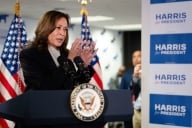You have /5 articles left.
Sign up for a free account or log in.
When the U.S. Supreme Court two years ago limited the First Amendment protections available to public employees, faculty groups thought that they had dodged a bullet. While the decision didn't go the way professors hoped, it specifically indicated that additional issues might limit its application in cases involving public college professors.
Now, however, a federal court has applied just the principle that faculty groups thought shouldn't be applied in higher education -- that bosses can punish employees for speech deemed inappropriate -- to a case involving a university. As a result, the American Association of University Professors and the Thomas Jefferson Center for the Protection of Free Expression are asking a federal appeals court to affirm that the Supreme Court decision does not apply to public higher education. The two groups warn that failure to reverse the lower court's decision could make it impossible for professors to freely debate hiring choices or campus policies.
The Supreme Court case that has set off this concern has nothing to do with higher education. Rather, in Garcetti v. Ceballos, the court ruled 5 to 4 that normal First Amendment protections did not protect Richard Ceballos, a Los Angeles deputy district attorney who was demoted and transferred after criticizing a local sheriff’s conduct to his supervisors. In his decision, Justice Anthony M. Kennedy wrote: "We hold that when public employees make statements pursuant to their official duties, the employees are not speaking as citizens for First Amendment purposes, and the Constitution does not insulate their communications from employer discipline."
But Kennedy also included language that lessened the fears of faculty groups, which said such a standard would be inappropriate in public higher education, where shared governance means that professors routinely question the policies of superiors. Kennedy wrote: "There is some argument that expression related to academic scholarship or classroom instruction implicates additional constitutional interests that are not fully accounted for by this court’s customary employee-speech jurisprudence. We need not, and for that reason do not, decide whether the analysis we conduct today would apply in the same manner to a case involving speech related to scholarship or teaching."
Now, two years later, the AAUP and the Thomas Jefferson Center fear that a federal district court may have missed that section of the decision.
In the current case, Juan Hong, a professor of chemical engineering at the University of California at Irvine, maintains that he was unfairly denied a merit raise because comments he made in faculty meetings offended superiors. Some of those comments concerned personnel decisions. More generally, Hong said that his department was relying too much on part-time instructors to teach lower-division courses, and that students were entitled to full-time professors.
The district court dismissed the suit, saying that these discussions were part of the "official duties" of professors, and thus under the Garcetti decision were not entitled to First Amendment protection. The court did not determine whether the lost merit raise was related to the comments, and the faculty groups' brief focuses on the legal principles, not the specific cases.
By ignoring Justice Kennedy's statements about the additional issues for higher education, the brief says, the district court's analysis was "fatally flawed." There are "profound differences," the brief says, between academic and other employment, among them the need for professors to express their honest views on a range of issues -- from student grades to course design to academic policy to hiring decisions.
More broadly, the brief argues that courts have traditionally respected academic freedom for good reason. "The speech of university professors merits a special degree of protection not only to facilitate an uninhibited pursuit of truth and advancement of knowledge, but equally to encourage scholars to speak candidly and fearlessly as they convey sometimes unwelcome or unsettling truths to government and citizens," the brief says.
While the brief expresses shock that the Garcetti decision would apply in higher education, the dissent in the 2006 ruling suggested just that possibility. Justice David Souter wrote that the majority decision "is spacious enough to include even the teaching of a public university professor, and I have to hope that today’s majority does not mean to imperil the First Amendment protection of academic freedom in public colleges and universities, whose teachers necessarily speak and write ‘pursuant to official duties.’ ”








